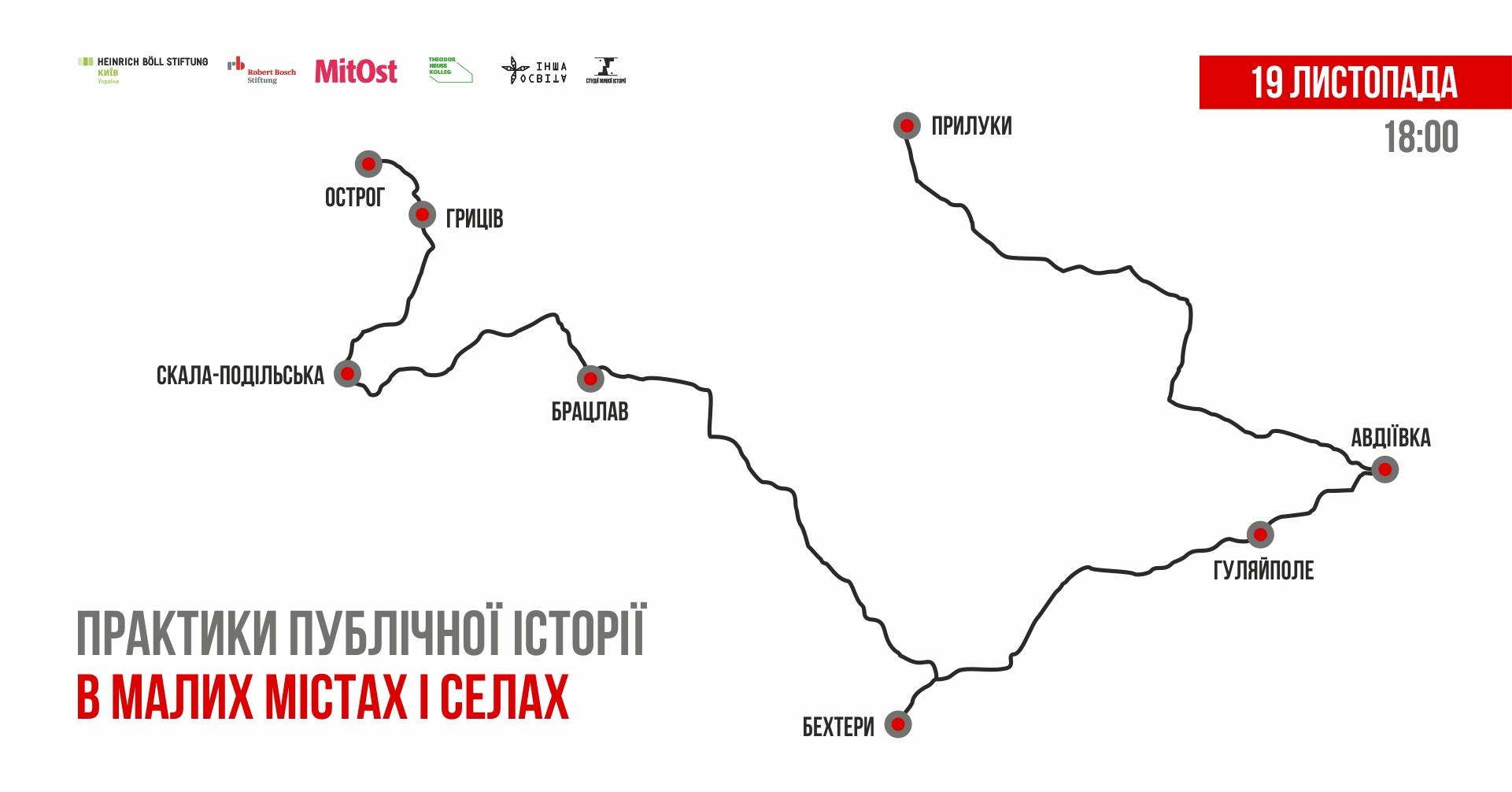Live History Workshop

Funding: German Federal Foreign Office, Robert Bosch Stiftung
Partners: MitOst e.V., Heinrich-Böll-Stiftung Ukraine, Robert Bosch Stiftung, Ukrainian Cultural Foundation, German Federal Foreign Office
Duration: 2015-2019 years
Coordinator: Taras Hrytsyuk, Yaroslav Perekhodko, Olga Diatel, Karina Fursa
Contact: office@insha-osvita.org
“Live History Workshop” is a program of non-formal historical education that aimed to combine two spheres that were developing in Ukraine: non-formal education and public history. Through dialogue, partnership, and the formation of an active network of people working with public history, the program stimulated a culture of critical reflection on oneself and one’s past, and a view of history from different perspectives. The program is based on the European tradition of understanding of non-formal education as complementing formal education, providing the acquisition of skills necessary for a socially and economically active citizen.
Throughout its existence, “Live History Workshop” supported participants in implementing initiatives for dialogue on local cultural heritage and memory politics, including reflection on the Soviet past and research on the multiethnic nature of Ukraine. The program covered a wide geography, from large cities to small villages throughout Ukraine. The experience of using public history practices and methodologies developed and tested by the program’s trainers is gathered in the collection “Practices of Public History in Non -formal Education”, published by the trainer group “Insha Osvita” as part of the project “Dialogue for Change”.
The program worked on:
- developing critical thinking among a young generation of Ukraine towards historical events and constructs;
- promoting dialogue as an effective tool for interaction and understanding;
- fostering personal and collective responsibility for researching history from different perspectives;
- cultivating an understanding that history is an important element that influences the world view of individuals and society.
The “Live History Workshop” program consisted of four stages:
- Idea Workshop. Participants developed their own initiatives for researching oral, family, local, or regional history.
- Field Research. This stage was essential for verifying and adjusting the plan formed in the first stage of the program.
- Workshop of Actions. Within the workshop, participants gained practical experience in implementing their project initiatives and working with historical materials, expert consultations, and mentorship. This stage was formed in response to requests following the Idea Workshop and included master classes in project management, documentary making, working with spaces, and method of historical work.
- Workshop of Experience. The final stage, during which participants presented the results of their work in the program and developed a vision for future activities.
From 2015 to 2019, a total of 200 participants of the program could implement around 100 cultural and historical projects. They worked on various topics, such as
- local history;
- personal, family and everyday history;
- 20th-21st century migration;
- Soviet heritage;
- the multiethnicity of Ukrainian history;
- the popularization of history.
During its five-year existence, “Live History Workshop” fostered a culture of critical thinking and implemented a variety of informal education and local initiatives throughout numerous regions of Ukraine.




